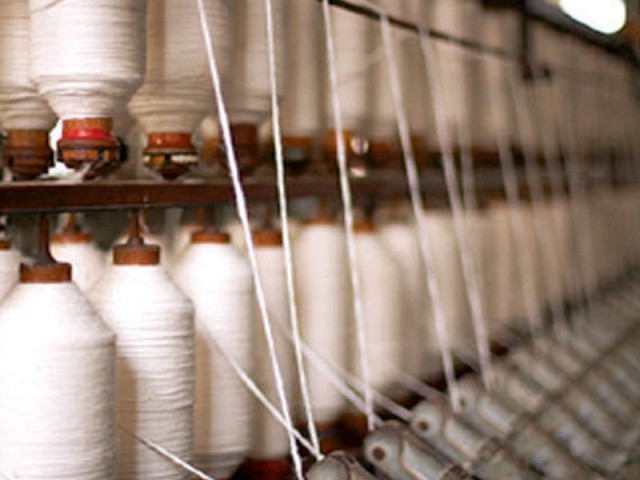Pakistan Readymade Garments Manufacturers and Exporters Association (PRGMEA) has urged the Prime Minister to conduct a forensic audit of yarn producers.
The request comes in wake of increasing prices of yarn causing financial stress to value-added textile exporters and increasing their cost of manufacturing.
In an open letter to the PM, it was pointed out that the textile manufacturers have increased the rates of yarn by more than 40 percent, in a very short span, over the excuse of lower production of cotton in the country, despite declining prices of cotton in the international market. This has led to an artificial shortage hitting the apparel sector exports badly.
The letter from PRGMEA has also detailed industry statistics, proving how this hike in price is artificially induced and how Pakistan can access affordable yarn even without resorting to imports from India.
The letter informs that the monthly production of yarn in Pakistan is 200,000 tons, with monthly consumption at 1.3 million bales.
200,000 tons of yarn is produced from cotton and synthetic fibers monthly, out of which only 100,000 tons of yarn is consumed by value-added per month balance is surplus. It is exported in the form of 60,000 tons of fabric and 40,000 tons of yarn every month.
The letter said that there is no question of shortage of yarn or fabric as it is in surplus. As per the free market mechanism, the buyers only need to pay international prices of the products to the value chain, but the so-called value-added sector of knitwear and woven garments does not want to pay the international prices of yarn and fabric.
PRGMEA alleges in the letter that the value-added sector also does not pay the regional wages of a minimum of $150 (or Rs. 22,000) to their labor in Pakistan, causing severe damage to the country. The salaried class is burdened with the rupee falling from Rs. 110 to Rs. 152 in three years with no minimum wage increase from Rs. 17,500 per month.
The letter informed that the cotton and yarn prices from India are only temporarily lower as the Indian exports were not as strong during the pandemic, and they have a temporary stockpile.
Another reason why Indian prices appear to be temporarily cheaper is the substantial increase in ocean freight, which before the pandemic was $1,300 and has now increased to $3,600 per 40 feet from Shanghai to Karachi and four times the normal freight rate from the US or Brazil.
It is completely baseless that yarn rates are above international rates. The export sector already has the facility to import yarn for re-export of products free of duty from anywhere in the world except India.
Export Refinance is available to the value-added sector at a mere 3 percent, and if it had been spent on purchasing yarn and cloth, the sector would not be reaching out to the government for additional support, PRGMEA said.
Approximately, Rs. 1 trillion has been acquired by the value-added sector in the name of Export Refinance for the procurement of yarn that would have given them enough stock for at least six months. However, there is no stock of yarn or fabric currently available with the companies, suggesting that the funds were utilized elsewhere.
Export Refinance availed by the value-added sector must be audited to see whether the credit is utilized for the purpose it was meant to be. Cheaper yarn, as is claimed could have been imported but was not done so.
It would be interesting to find out on what items this concessional finance has been spent – there will be nasty surprises, the letter insisted.
Spinning industry players imported cotton when cotton prices were high (90 cents/lb), and the exchange rate was Rs. 165. Currently, cotton is at 80 cents, and the exchange rate is Rs. 152.
The combined effect is that raw material (cotton) that has been imported is 22 percent more expensive. but the yarn manufacturers had to adjust pricing in line with the lower cotton price and exchange rate, taking a hit of approximately 10 percent on the realized value of yarn.
The rupee appreciated against the dollar by 8 percent and thereby squeezed the textile sector by reducing the amount of rupees they would have received.
In a business that is volume-based with small margins, large-scale unforeseen appreciation has wiped out profitability. Failure to hedge against exchange rate fluctuation is a business decision, and neither the government nor anyone else can be held responsible.
Apart from the commercial considerations, we demand that the industrial sector, including the value-added sector, must increase minimum wages to at least Rs. 22,000 per month, in line with the inflation in the country and regional wages.
This is the only solution to ease life for the working class by increasing minimum wages to counter the issue of food price inflation, said the letter.


























